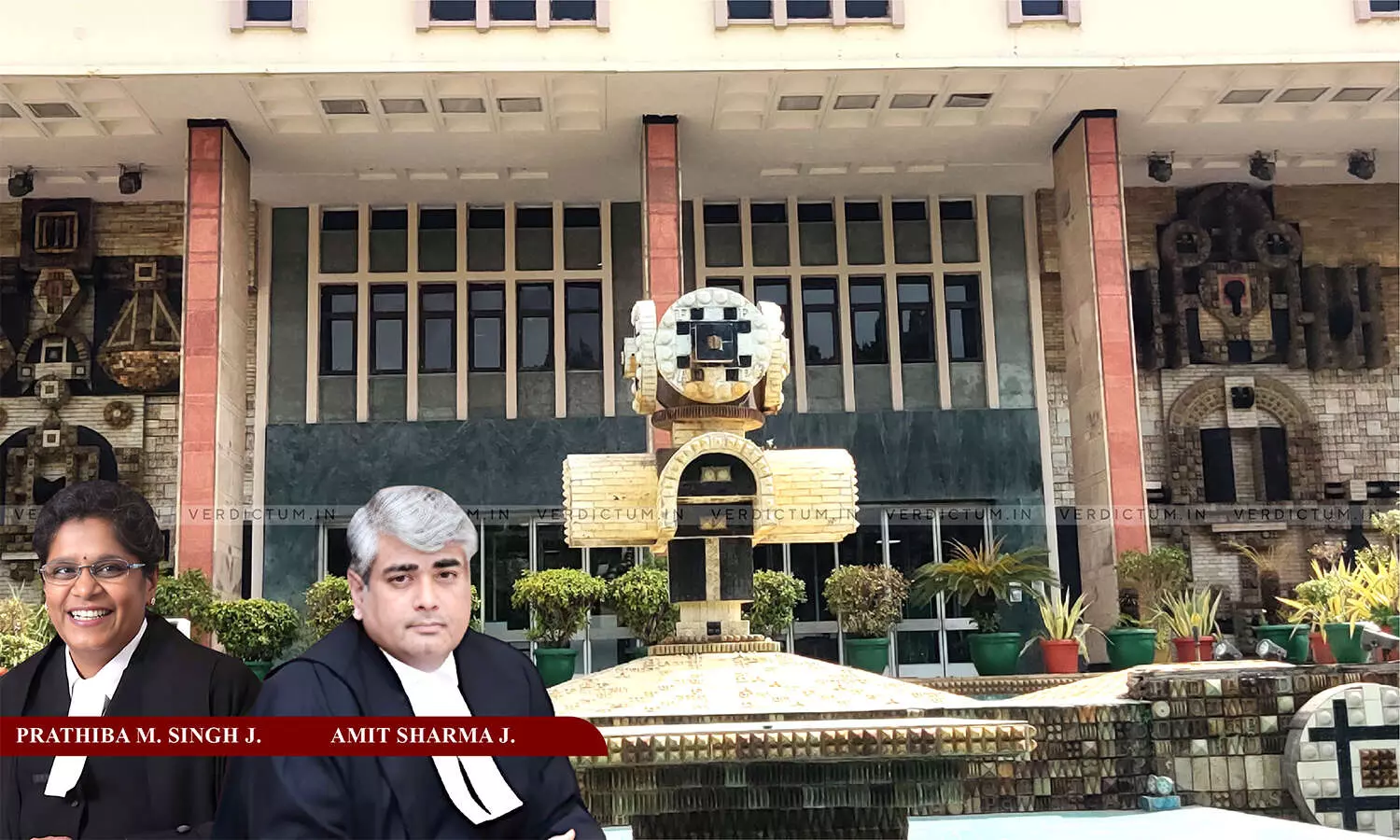
Circulation Of Fake Currency Impinges Upon Economic Security Of Country & Has Disastrous Effect On Economy: Delhi HC Refuses To Grant Bail To Accused
 |
|The Delhi High Court refused to grant bail to an accused being allegedly involved in fake currency circulation case.
The Court said that the circulation of fake currency impinges upon economic security of the country and has disastrous effect on the economy.
A Division Bench comprising Justice Prathiba M. Singh and Justice Amit Sharma observed, “Circulation of fake currency impinges upon the economic security of the country, and such circulation could have a disastrous effect on the economy. The term ‘economic security’ has been specifically added as a ‘terrorist act’ under Section 15 of the UAPA in 2013, along with an Explanation (b) defining ‘high quality counterfeit Indian currency’. Persons who may be involved in circulation of fake currency, operate through several back-channel networks, which span across countries. They do not use usual channels of communication, and fake currency is usually introduced into the market in an extremely clandestine manner.”
The Bench added that the penetration of networks related to fake currency can pose a grave challenge for the investigation agency as well.
Advocate Rahul Raheja represented the appellant/accused while SPP Gautam Narayan represented the respondent/National Investigation Agency (NIA).
Factual Background -
As per the prosecution case, a man (accused no.1) was apprehended in 2022 upon his arrival at New Delhi Airport from UAE and was searched by the Custom officials. Fake Indian Currency Notes (FICNs) of Rs. 500/- denomination, totalling 2000 in number, were recovered from him, amounting to Rs. 10 lakhs and additionally, gold weighing 175 grams was also recovered from him. The allegation was that the said man was to handover the FICNs to another man (accused no.2) at airport who was also intercepted and arrested.
Hence, the said sum was seized and sent to the Currency Note Press, Nasik for examination and its report declared the recovered FICNs as high-quality counterfeit Indian currency. The case made out against the appellant (accused no.3) was that he was facilitating the two other accused in smuggling FICNs and other counterfeit articles from Dubai to India. He was arrested for his role and hence, he was before the High Court, seeking bail by filing an appeal.
The High Court in the above context of the case noted, “… the case of the Appellant stands on a completely different footing from as that of A-4 Amandeep Singh. … there are sufficient grounds at this stage to believe that the allegations against the Appellant are prima facie true.”
The Court said that at this stage, the evidence on record does not point to the innocence of the appellant, but on the contrary, prima facie points to the fact that he is involved in facilitating the circulation of high-quality counterfeit Indian currency.
“The mention of various names in the Notepad/diary, which has been proven to be in the handwriting of the Appellant, indicates that the Appellant has connections with individuals directly involved in the handling of fake currency. … Further, the tests laid down by the Supreme Court in Gurwinder Singh (supra) are fully satisfied in the facts of the present case. One of the factors laid down even in Zahoor Ahmad Shah Watali (supra) which has been reaffirmed by the Supreme Court in Gurwinder Singh (supra) for consideration of bail, is that if the charge is framed, it is safe to assume there is a strong suspicion based on the material, which is satisfied in this case”, it enunciated.
Furthermore, the Court noted that the appellant’s claim that he was unaware the currency being dealt with was fake would also need to be established before the Trial Court at the appropriate stage and that the stand of the appellant, that he is merely involved in the business of import/export of burkhas and other garments and gold, would have to be raised as a defence to be established before the Trial Court.
“At this stage, the trial is ongoing, and two witnesses have been examined. The Appellant has been in custody for two years. Considering the maximum punishment prescribed under Section 18 of the UAPA, and the present stage of the trial, this Court is not inclined to grant bail to the Appellant at this stage. The impugned order of the ld. Trial Court dated 28th February, 2024 does not warrant any interference this Court”, it concluded.
Accordingly, the High Court dismissed the appeal.
Cause Title- Abdul Wahid Alias Saddam v. National Investigation Agency (Neutral Citation: 2024:DHC:5824-DB)
Appearance:
Appellant: Advocates Rahul Raheja and Gaurav Prakash.
Respondent: SPP Gautam Narayan, Advocates Asmita Singh, K.V. Vibu Prasad, and Anirudh Anand.